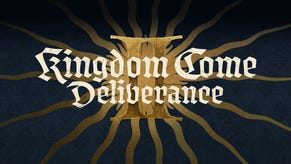Driving digital: Charting the inevitable death of discs
When Sony and Microsoft finally announce their next home consoles, it may spell the end of physical media on major console platforms. This should not take you by surprise.
Despite a suspicious and bogglingly expensive approach to storage (anybody still languishing with a launch console, deleting saves to make room for installs?) you can bet both Microsoft and Sony will fit out their next offerings with suitably weighty solutions; whopping HDDs are a cert, or whatever affordable event horizon flash storage has reached.
Both new boxes will bristle with orifices - network connection options, USB and SD readers, portable hardware connectors - but one will be notably absent: the place you'd traditionally stick a plastic disc.
Sometime between 2014 and 2016, Sony and Microsoft will launch their new hardware generation, and the chances of anyone attempting to turn a profit on such things by this point are negligible.
It's in the numbers
No one's speculating any more. The evidence is on plain display if you choose to see it. John Riccitiello - who has confidently bet the bank on the digital revolution - has said this is the year he expects digital revenues to overtake that of physical goods. Riccitiello is the head of EA, a company that takes billions in packaged game revenue, but is seeing his cashflow swing violently towards digital distribution.
A main reason many may be slow in the uptake as to how quickly digital distribution is being adopted as the default method of game software delivery is because some of the numbers guys are dragging their feet.
JR is all about digital, which is why he's pushing US stat-tracker NPD so hard to start reporting non-physical sales. He's just one of a growing crowd calling on NPD to accelerate plans to release robust and complete digital sales data for the US market.
Quite rightly, EA is loudly protesting that the American videogames trade is being badly misrepresented in terms of performance. Take a look back over the last two years of NPD software sales data; it's depressing.
It's not that sales are declining month-on-month, or even that the last 12 months have consistently failed to meet previous year's records. Instead, we see a pattern of near stability. June 2010 was better than June 2009. October 2010 didn't meet October 2009's performance. And so on, dancing back and forth the chart, with a disappointing 2010-2011 holiday period failing to meet expectations, offset by year-on-year wins during a few calendar months.
Why is that a problem? Stability is good, right? At least it's not downturn. Wrong. Stability is not good for any industry, especially any reliant on investors. Static sales performance? Dump that stock. Growth is the only measure of health we have, and we're not seeing it in one of the most respected sources of data in the industry.
Before you start laying out your seppuku tools, let's remind ourselves of the message constantly coming to us from analysts and industry figures: the games industry is not shrinking. It is not static. It is growing, rapidly becoming a mainstream entertainment force with a growth of profitability and reach other media is starting to envy.
NPD's US sales data doesn't show this as it ignores growing streams of revenues outside traditional channels.
EA claims 40 percent of games sales are now digital. In the fiscal year ending March 2009, EA's digital arm had amassed $429 million in non-GAAP revenue, 27 percent higher than the previous year's efforts. In 2010, that figure rose to $570 million, a further 33 percent increase.
These aren't insignificant numbers, and they're not reflected in the information most readily available to us. None of the major outlets - PSN, Steam, or Xbox Live - release sales data to the public. When chart tracking services like NPD follow through on plans to do so, you can expect a lot of smug "I told you so" comments from analysts, as the death knell of physical media becomes apparent to everyone.
These aren't insignificant numbers.
EA is keen to flaunt increased digital figures, and even keener on chart-track services like NPD to do it for them - because after fumbling the ball, it's faced with the unpleasant task of winning back investor confidence. A change in the way it reports it finances, and a very public stance on embracing digital in a way compatible with the values of core gaming, is helping.
Riccitiello made no bones about the company's direction in its last investor call: EA's going digital.
"Over the coming years, we will transform EA from a packaged goods company to a fully integrated digital entertainment company," he said.
EA's digital revenue for its fourth quarter, ended March 31, showed heavy growth, up from $144 million in 2010 to $211 million this year.
On a full-year basis, downloadable content – from console and PC combined – was triple the firm’s fiscal year 2010 results.
EA's not alone. Activision Blizzard, the other giant of our times, is pursuing similar digitally-focussed courses, in quieter, less aggressive ways. Revenue for Activision's first quarter, ended March 31, was up from $1.31 billion in 2010 to $1.45 billion this year, and 50 percent of that final figure was acquired through digital distribution. We're at the tipping point. Company head Bobby Kotick said of the figures that he has only “scratched the surface” in terms of downloadable opportunity.
Both EA and Activision have now clearly stated they are in the process of transitioning away from discs. Other major publishers are following suit, and a growing number of upstarts have made their names on the back of digital.
Take Valve, for example. To say the developer turned digital distributor is now a major force in gaming is something of an understatement, especially as we approach the PC-favourable end of the console generation seesaw. Valued at close to $4 billion, and reportedly commanding up to 70 percent of PC games market revenue, Valve, which has around 250 staff, is more profitable per employee than Google. All because Steam has gone from an interesting gimmick to being almost ubiquitous. It's changed the way we think of owning games.
What do you actually own?
Before digital distribution took off, buying a game meant paying a significant amount of money for a plastic disc, some printed paper, and a case. The actual content of the game, in many people's minds, was intrinsically linked with its physical manifestation. This is an illusion.
The fact is, when you buy a game, you're not buying an object - you're not even buying the data stored on it. You're buying a license - the right to use that data according to terms and conditions. You're being granted limited access to the creative and technical wizardry of sometimes startlingly large numbers of individuals, and you fork over some cash for the privilege.
Services like Steam, or the console networks, make this beguilingly easy, offering added benefits like the ability to free drive space by uninstalling but retaining the right to put them back later. No more lugging massive boxes to your new flat, or wondering where you'll fit another shelf to hold rows of largely oversized cases. No more discs to scratch, or snap, or be stolen by your cousin Harry - that bastard.
Of course, not everyone wins as we speed away from physical media. The factory that makes plastic cases will lay off staff. Distributors will have to start ferrying around something else. Retailers are going to have to s**t or get off the pot for good - as Gamestop has done, acquiring Spawn Labs and Impulse and pushing DLC sales.
The rush to not get caught out is now on. Namco Europe's VP Olivier Comte is certain bricks-and-mortar can grab a serious slice of the action as increasing amounts of traditional retailers launch download services.
There's far less risk to the customer, and there's likely to be a real upside. Knock these extra links and their associated costs out of the chain, and there's an opportunity for lower-priced games, as well as more daring leaps of innovation. Currently, agreements and distributors force publishers to price digital goods at or around the same point as physical releases, despite lower costs.
On top of that, piracy is likely to get knocked on its arse for a few years, since DRM like that of Steam, Xbox LIVE and PSN will only improve.
Roadblocks
Which all sounds great, depending on which side of the fence you're sitting. How quickly is this going to happen on a global level, though? There are at least a couple of factors that block the mass adoption of digital distribution. The first, and least tenuous, is consumer confidence.
When Steam first took off, PC gaming message boards were full of vitriolic hate. The service had a messy start, but most of the anger seemed to arise from the presence of some sort of DRM - a bugbear of increasingly less importance - and the possibility, however slim, of losing access to your games through the vagaries of the Internet.
The latter worry has faded into the background - mostly. When Good Old Games pulled an elaborate shutdown prank, gamers were outraged at the loss of their expensive libraries vanishing into thin air. Of course, it was a joke, and those digital distribution services which have folded have almost always made arrangements to ensure players didn't lose anything, but it's a valid concern.
What happens to your PlayStation 3 games if the PlayStation 4 isn't backwards compatible? Even if they are, will you be able to carry them across through your PSN account? Will Sony and Microsoft make us buy all our favourite games again? It's the same worry we have with physical copies of games, but at least with those, you have the chance to track old hardware down on eBay.
Despite these anxieties, adoption of digital distribution continues to rise, soaking up your bandwidth. And here we hit problem two. Like cloud-based gaming, digital distribution is reliant on Internet technology. It's ahead of its brother, because it's less reliant on really fast connections, but there are limits. In countries where sub-ADSL2 speeds are common - most of the world - downloading full retail games is a nightmare, blocking every other device from accessing the 'net, bricking your gaming platform for hours on end, and using up your puny data allowance.
This is easy to dismiss in Europe, Japan, and big-city US, but a significant number of people live outside these territories and are becoming more important to gaming: Sony's expanding into China, where it has traditionally held back; Microsoft's expanding everywhere, and the Southeast Asia market is expected to hit $1.7 billion by 2014. The industry has to time its conversion carefully, to ensure it doesn't cut out emerging markets.
More personally threatening for current gamers are those established markets which could well be sacrificed in the revolution. Australia, for example, is lagging behind the rest of the English speaking world when it comes to Internet availability. Like the US, it has vast distances to bridge with enormously expensive cable upgrades, but, unlike the US, it doesn't have the population to make the investment a foregone conclusion.
The industry has to time its conversion carefully, to ensure it doesn't cut out emerging markets
Given the paltry sales the nation as a whole generates - not to mention a generally unfriendly approach to games - what are the chances the industry will take "Australians will be bolloxed" as a consideration when choosing whether or not to go entirely digital?
This is a scenario which could play out in dozens of territories - including rural US and even vast tracks of suburbia elsewhere - and unless Internet technology and Government policy towards it evolve rapidly, many of us won't be ready for the next console generation in four years' time.
Will that stop the trend? No. The rest of us are set - although we may mourn the bragging rights inherent in your display case of games, this attitude towards ownership is changing so rapidly that even you may have forgotten all about it in a few years' time, focussing instead on your gamerscore, your leaderboard position, or even your social connections with fellow gamers.
Project Café may be showing off an optical drive when it's announced in LA next month, but you'd be brave to bet against Microsoft and Sony dropping discs for their next console round.











